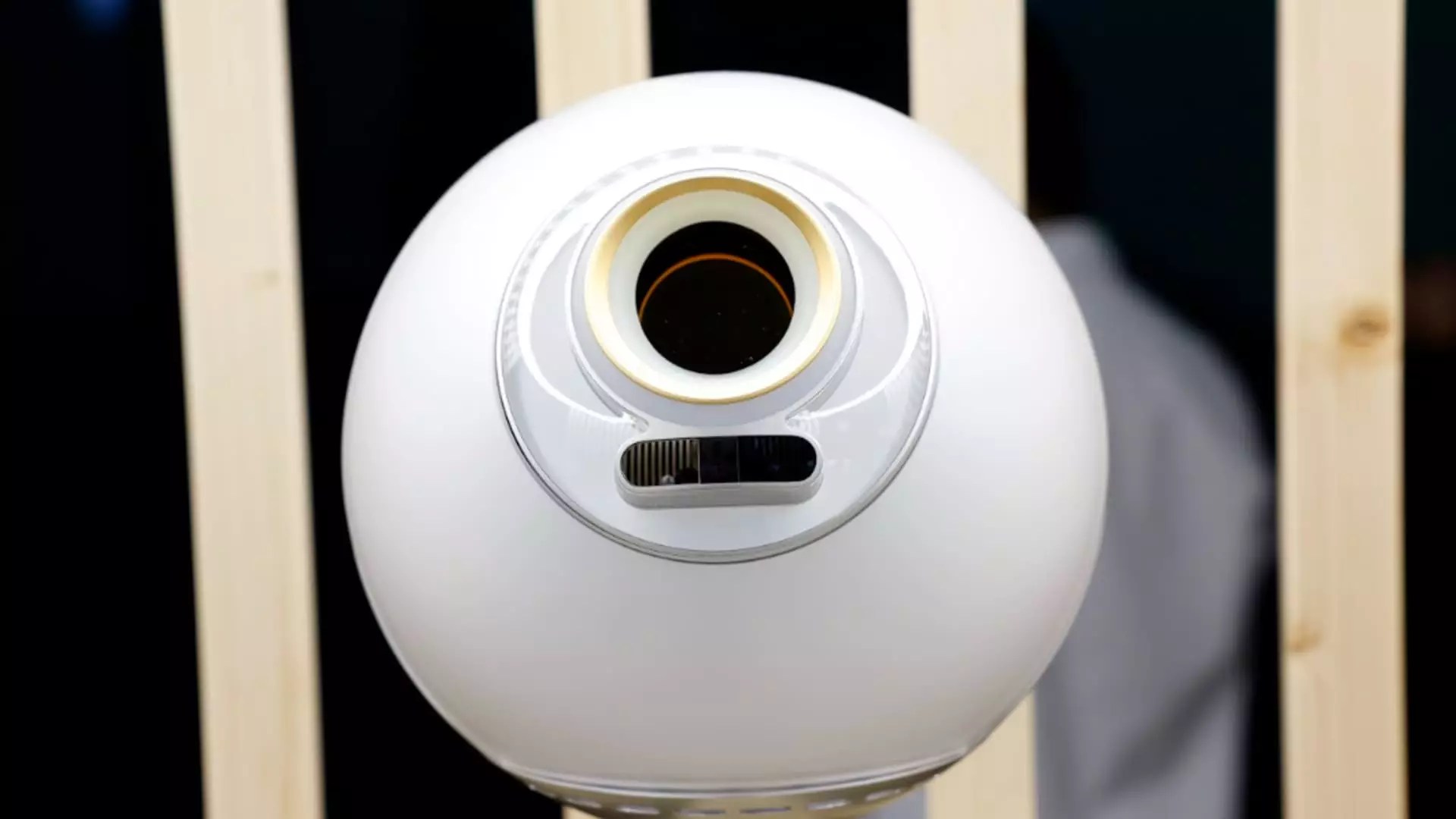The impending arrival of World, an ambitious biometric identity verification project rooted in advanced eye-scanning technology, raises pressing questions about its implications for privacy and autonomy. Co-founded by OpenAI’s Sam Altman, World seeks to authenticate human identities and mitigate the potential for artificial intelligence abuse, particularly concerning deepfakes. Set to launch in the UK, this venture signals not only a technological advancement but the onset of a new era in surveillance—one that could potentially compromise individual liberties under the guise of security.
Initial predictions show significant market demand as both corporate entities and governments seek solutions to rampant identity fraud in sectors ranging from finance to online gaming. According to Adrian Ludwig, chief architect of Tools for Humanity—a key player in the World initiative—this system’s biometric eye-scanning device, the Orb, is seen as an effective defense against threats that digital innovations pose. Yet, the underlying tension presented by such initiatives lies in the delicate balance between necessary security measures and the erosion of personal privacy.
The Price of Convenience: Identity for Cryptocurrency
As World expands its reach—including plans to engage users in major cities like Manchester, Birmingham, and Glasgow—its approach raises ethical eyebrows. The promise of exchanging personal information for cryptocurrency, in this case, WLD tokens, could well create a troubling precedent. Individuals are not merely waiving their privacy; they are being incentivized to do so. This transaction does not just compromise individual privacy but raises issues of consent. Would citizens be willing to put their biometric data to the test for a few digital coins? The answer may lie in the growing trend of commodifying personal information, but such a bargain risks undervaluing the concept of personal identity and its sanctity.
It is concerning that as we veer further into this biometric age, the stakes of this interaction become amplified; identity is no longer inherent but negotiable—an alarming proposition in a society that values individual rights.
The Crippling Fear of AI: Are We Justified in Our Panic?
The notion that AI technologies are fast outpacing human capacity for security and verification looms large, propelling projects like World into the limelight. The increasing prevalence of AI-enabled systems capable of manipulating identities has created a pervasive environment of paranoia, leading us to accept surveillance measures that, in normal circumstances, we would vehemently oppose. Corporations and regulators preach about the need for these measures, pushing forward initiatives that primarily serve their interests whilst glossing over the potential countermoves against personal freedoms.
Ludwig claims that World intends to capture the interest of governments eager to bolster their digital identity infrastructures. Still, this acceptance of surveillance as a mechanism to thwart fraud reveals a disturbing trend. This “solution” to identity verification may instead provide a gateway for further government intrusion, akin to what we’ve seen in digital identity programs like India’s Aadhaar system, notorious for security breaches and social inequity. In its quest to combat fraud, are we actually dismantling the frameworks of our civil liberties?
The Illusion of Decentralization and Risk Exposure
World’s proposed model—the use of decentralized networks facilitated through mobile devices—sounds attractive. However, in reality, the attempt to decentralize biometric data still carries an inherent risk. By offloading verification responsibilities to third parties, World opens itself up to the very vulnerabilities it seeks to mitigate. Centralized entities managing biometric databases cannot guarantee perpetual security; the specter of data breaches is ever-present, regardless of the claims to protect privacy through encryption and data deletion.
Furthermore, while World aims to reinforce privacy safeguards, it is crucial to recognize that the mere existence of such systems stimulates latent fears of misuse and exploitation. As we absorb the prospect of scaling this initiative to millions, we must confront the unsettling possibility that biometric data can become not only a tool for verification but a liability easily exploited by malicious actors or stray government protocols.
Consumer Awareness: The Role of the Individual in a Biometric Society
As World rolls out its ambitious project, individual awareness and engagement will be paramount. Users must be educated not just about the technology but also about its broader implications for society. The allure of convenience may prove irresistible; however, a discerning populace that questions the trade-offs of biometric identity verification can act as a vital check on unfettered technological expansion.
Potential participants in World must interrogate their motivations: what are they giving up, and what are they receiving in exchange? As this technology penetrates deeper into daily life—from gaming sites like Minecraft to social networks like Reddit—it is essential to scrutinize the culture of normalization surrounding surveillance and biometric data collection.
Through critical engagement and informed decision-making, society can mitigate the threats posed by projects like World and ensure that individual rights remain intact in an increasingly digital world. It’s not merely about advancement; it’s about steadfastly preserving the essential aspects of human identity against the relentless march of technology.

